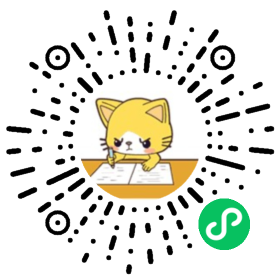【单选题】
中国工程院院士袁隆平曾结合自己的科研经历,语重心长地对年轻人说:“书本知识非常重要,电脑技术也很重要,但是书本电脑里种不出水稻来,只有在田里才能种出水稻来。”这表明。___
A. 实践水平的提高有赖于认识水平的提高
B. 实践是人类认识的基础和来源
C. 理论对实践的指导作用没有正确与错误之分
D. 由实践到认识的第一次飞跃比认识到实践的第二次飞跃更加重要
查看试卷,进入试卷练习
微信扫一扫,开始刷题

相关试题
【单选题】
社会存在决定社会意识,社会意识是社会存在的反映。社会意识具有相对独立性,即它在反映社会存在的同时,还有自己特有的发展形式和规律。社会意识相对独立性最突出的表现是。___
A. 社会意识内部各种形式之间的相互作用和影响
B. 社会意识与社会存在发展的不完全同步性
C. 社会意识各种形式各自具有其历史继承性
D. 社会意识对社会存在具有能动的反作用
【单选题】
俄国早期马克思主义理论家普列汉诺夫说,绝不会有人去组织一个“月食党”以促进或阻止月食的到来,但要进行社会革命就必须组织革命党,这是因为社会规律与自然规律有所不同,它。___
A. 不具有重复性的客观规律
B. 由多数人的意志决定的
C. 通过人的有意识的活动实现
D. 比自然规律更易于认识的规律
【单选题】
恩格斯说:“鹰比人看得远得多,但是人的眼睛识别的东西远胜于鹰。狗比人具有锐敏得多的嗅觉,但是它连被人当作为各种物的特定标志的不同气味的百分之一也辨别不出来。”人的感官的识别能力高于动物,除了人脑及感官发育得更完美之外,还因为。___
A. 人不仅有感觉还有思维
B. 人不仅有理性还有非理性
C. 人不仅有直觉还有想象
D. 人不仅有生理机能还有心理活动
【单选题】
有这样一道数学题:“90%×90%×90%×90%×90%=?”其答案是约59%。90分看似一个非常不错的成绩,然而,在一项环环相扣的连续不断的工作中,如果每个环节都打点折扣,最终得出的成绩就是不及格。这里蕴含的辩证法道理是。___
A. 肯定中包含否定
B. 量变引起质变
C. 必然性通过偶然性开辟道路
D. 可能和现实是相互转化的
【单选题】
毛泽东曾在不同的场合多次谈到,调查研究有两种方法:一是走马看花、一是下马看花。走马看花,不深入,还必须用第二种方法,就是下马看花,过细看花,分析一朵花。毛泽东强调“下马看花”的实际意义在于。___
A. 解决实际问题必须要有先进理论的指导
B. 运用多种综合方法分析调查研究的材料
C. 马克思主义理论必须适合中国革命的具体实际
D. 只有全面深入地了解中国的实际,才能找出规律
【单选题】
社会历史观的基本问题是。___
A. 社会存在和社会意识的关系问题
B. 物质和意识的关系问题
C. 思维和存在是否具有同一性的问题
D. 世界是怎样存在的问题
【单选题】
关于世界是怎样存在的问题,形成了两种不同的观点,分别是。___
A. 唯物主义和唯心主义
B. 辩证法和形而上学
C. 可知论和不可知论
D. 唯物史观和唯心史观
【单选题】
列宁对物质概念的定义是通过。___
A. 共性与个性的关系界定的
B. —般与个别的关系界定的
C. 认识与实践的关系界定的
D. 物质与意识的关系界定的
【单选题】
在意识的产生和发展中起着决定性作用的是。___
【单选题】
马克思主义认为,物质与意识的辩证关系是。___
A. 物质决定意识,意识对物质具有反作用
B. 物质与意识相互决定
C. 物质受意识制约,意识影响物质
D. 物质决定意识,意识完全受物质制约
【单选题】
甲说:世界是由金木水火土组成乙说:存在就是被感知。对于甲、乙的观点,下列说法中正确的是。___
A. 甲的观点是客观唯心主义观点乙是朴素唯物主义观点
B. 甲的观点是古代朴素唯物主义观点乙是主观唯心主义观点
C. 甲的观点是客观唯心主义观点乙是主观唯心主义观点
D. 甲的观点是古代朴素唯物主义观点乙是客观唯心主义观点
【单选题】
设想存在着不运动的物质,会陷入。___
A. 形而上学
B. 诡辩论
C. 辩证法
D. 唯心论
【单选题】
下列选项中,关于运动和静止辩证关系的理解,正确的是。___
A. 动即是静,静即是动
B. 只有绝对运动,没有相对静止
C. 动中有静,静中有动
D. 静止是物质运动在一定条件下的稳定状态
【单选题】
物质运动的存在形式是。___
A. 时间
B. 空间
C. 时间和空间
D. 实践
【单选题】
人类社会存在和发展的基础是。___
A. 物质资料生产方式
B. 人的意识
C. 社会实践
D. 生产力
【单选题】
唯物辩证法认为世界是普遍联系的。联系是指事物内部各要素之间和事物之间。___
A. 简单的沟通和交流
B. 相互依赖,谁也无法离开谁
C. 相互渗透
D. 相互影响、相互制约和相互作用的关系
【单选题】
联系与发展是唯物辩证法的基本观点和总特征。联系的前提是事物之间的。___
【单选题】
矛盾是辩证法的核心概念。矛盾是指。___
A. 事物内部或事物之间的对立统一关系
B. 人们思维过程中由于违反形式逻辑规则所造成的自相矛盾
C. 以子之矛,攻子之盾
D. 我承认万事万物都有矛盾,但是我认为咱们班上没有矛盾
【单选题】
矛盾的两种基本属性是。___
A. 普遍性和特殊性
B. 同一性和斗争性
C. 共性和个性
D. 必然性和偶然性
【单选题】
在矛盾体系中处于支配地位,对事物发展起决定作用的矛盾是。___
A. 根本矛盾
B. 非根本矛盾
C. 主要矛盾
D. 次要矛盾
【单选题】
在唯物辩证法的方法论体系中,居于核心地位的是。___
A. 矛盾分析法
B. 联系与发展
C. 对立统一
D. 客观分析法
【单选题】
—事物成为自身并区别于它事物的是事物的。___
【单选题】
揭示了事物发展的形式和状态的是。___
A. 对立统一规律
B. 质量互变规律
C. 否定之否定规律
D. 自然规律
【单选题】
“是就是,不是就不是除此之外,都是鬼话。”这种观点属于。___
A. 辩证否定观
B. 形而上学否定观
C. 诡辩论
D. 唯心论
【单选题】
揭示事物的前后相继、彼此制约的关系范畴的是。___
A. 必然性和偶然性
B. 原因和结果
C. 内容和形式
D. 可能性和现实性
【单选题】
从一般原理推论出个别结论的思维方法是。___
A. 归纳方法
B. 演绎方法
C. 分析方法
D. 综合方法
【单选题】
发挥人的主观能动性的前提是。___
A. 尊重客观规律
B. 创造规律
C. 摆脱规律的束缚
D. 实现人的自由和解放
【单选题】
发挥人的主观能动作用的基本途径是。___
A. 意识
B. 理念
C. 社会实践
D. 蓝图
【单选题】
意识自身“物化”过程的实质是。___
A. 人的意志改造世界的过程
B. 人的意识创造物质的过程
C. 人用意念变物的过程
D. 通过实践改造物质世界的过程
【单选题】
“要富口袋,先富脑袋”这一说法在哲学上的含义是。___
A. 精神力量可以变成物质力量
B. 先有精神后有物质
C. 精神是第一性的,物质是第二性的
D. 精神的力量可以替代物质的力量
【单选题】
在哲学史上第一次科学地对哲学基本问题作出完整概括和论证的是。___
A. 黑格尔
B. 马克思
C. 费尔巴哈
D. 恩格斯
【单选题】
史铁生在《我与地坛》里说:“我常以为是丑女造就了美人,我常以为是愚氓举出了智者,我常以为是懦夫衬照了英雄,我常以为是众生度化了佛祖。”这句话表明。___
A. 矛盾双方相互依存,互为存在前提
B. 必然性通过偶然性开辟道路
C. 量变必然导致质变
D. 有其因必有其果
【单选题】
马克思主义认识论的首要的和基本的观点是。___
A. 实践观点
B. 联系的观点
C. 发展的观点
D. 物质
【单选题】
实践和认识活动中的主体是指。___
A. 工具、手段
B. 实践和认识活动所指向的对象
C. 具有思维能力、从事社会实践和认识活动的人
D. 运用、操作工具的程序和方法
【单选题】
实践和认识活动中的客体是指。___
A. 具有思维能力、从事社会实践和认识活动的人
B. 实践和认识活动所指向的对象
C. 工具和手段
D. 自然界
【单选题】
人类最基本的实践活动是。___
A. 科学文化实践
B. 社会政治实践
C. 物质生产实践
D. 人类社会的自生产
【单选题】
掘成的。”这两句话意在强调。___
A. 人先天的生理素质
B. 人的天赋才能
C. 后天的社会实践
D. 知识背景和社会地位的重要性
【单选题】
了。___
A. 感性认识的作用
B. 理性认识的作用
C. 直接经验的作用
D. 间接经验的作用
推荐试题
【单选题】
山水公司为增值税一般纳税人,适用的增值税税率为17%。2018年1月20日以其拥有的一项专利技术(符合免征增值税条件)与日上公司生产的一批商品交换。交换日,山水公司换出专利技术的成本为100万元,累计摊销为20万元,已计提减值准备30万元,公允价值无法可靠计量;换入商品的公允价值为80万元,增值税税额为13.6万元,山水公司将其作为存货核算;山水公司另向日上公司支付20万元补价。该非货币性资产交换具有商业实质,不考虑其他因素,山水公司以下处理不正确的是___万元。
A. 换入商品的入账价为80万元
B. 换出无形资产的处置损益为23.6万元
C. 增值税进项税为13.6万元
D. 无形资产的处置损益应计入“营业外支出”
【单选题】
天山公司用一台已使用2年的甲设备从海洋公司换入一台乙设备,为换入乙设备支付相关税费10 000元,从海洋公司收取银行存款30 000元。甲设备的原账面原价为500 000元,原预计使用年限为5年,原预计净残值为5%,并采用双倍余额递减法计提折旧,未计提减值准备;乙设备的原账面原价为240 000元,已提折旧30 000元。假设两公司资产置换具有商业实质。置换时,甲、乙设备的公允价值分别为250 000元和220 000元。假定不考虑换入、换出资产的增值税因素的影响。天山公司换入乙设备的入账价值为___元。
A. 160 000
B. 230 000
C. 168 400
D. 200 000
【单选题】
下列各项交易中,属于非货币性资产交换的是___。
A. 以一项准备持有至到期的债券投资换入一台设备
B. 以一项专利权换取一项交易性金融资产
C. 以公允价值为500万元的可供出售金融资产换取一辆货运汽车,并收到补价200万元
D. 以一项应收票据换取一项土地使用权
【单选题】
某企业2018年1月10日用一批库存商品换入一台设备,并收到对方支付的银行存款30万元。该批库存商品的账面价值为120万元,不含增值税的公允价值为150万元,计税价格为140万元,适用的增值税税率为17%;换入设备的原账面价值为130万元,公允价值为120万元,计税价格为140万元,适用的增值税税率为17%,假设该交换具有商业实质,则该企业因此项交换影响损益的金额为___万元。
A. 30
B. 31.2
C. 150
D. 140
【单选题】
下列描述中不属于换入或换出资产的公允价值能够可能计量的是___。
A. 换入资产或换出资产存在活跃市场
B. 换入资产或换出资产不存在活跃市场、但同类或类似资产存在活跃市场
C. 换入资产或换出资产不存在同类或类似资产可比市场交易、采用估值技术确定的公允价值满足一定的条件
D. 换入资产或换出资产不存在同类或类似资产活跃市场,可以根据会计人员的经验估计
【单选题】
甲公司为增值税一般纳税人,适用的增值税税率为17%。2018年1月20日以其拥有的一项专利技术(符合免征增值税条件)与乙公司生产的一批商品交换。交换日,甲公司换出专利技术的成本为100万元,累计摊销为20万元,已计提减值准备30万元,公允价值无法可靠计量;换入商品的成本为50万元,未计提存货跌价准备,公允价值为80万元,增值税税额为13.6万元,甲公司将其作为存货核算;甲公司另向乙公司支付20万元补价。该非货币性资产交换具有商业实质,不考虑其他因素,甲公司对该交易应确认的收益为___万元。
A. 0
B. 43.6
C. 30
D. 23.6
【单选题】
A企业以其用于经营出租的一幢公寓楼,与B企业同样用于经营出租的一幢公寓楼进行交换,两幢公寓楼的租期、每期租金,及租金总额均相等。其中A企业用于交换的公寓楼是租给一家财务信用状况比较良好的企业用作职工宿舍,B企业用于交换的公寓楼是租给散户使用。则下列关于商业实质的,正确的是___。
A. 两幢公寓楼用途相同,该项交换不具有商业实质
B. 两幢公寓楼租期、每期租金均相同,即租金总额相同,该项交换不具有商业实质
C. A企业用于交换的公寓楼相比较B企业用于交换的公寓楼风险要小得多,该项交换具有商业实质
D. 无法其是否具有商业实质
【单选题】
具有商业实质且以公允价值计量的非货币性资产交换,在换出库存商品且其公允价值包含增值税的情况下,下列说法正确的是___。
A. 按库存商品不含税的公允价值确认主营业务收入
B. 按库存商品含税的公允价值确认主营业务收入
C. 按库存商品公允价值高于账面价值的差额确认营业外收入
D. 按库存商品的账面价值结转,不确认主营业务收入
【单选题】
M公司以一项无形资产交换N公司的一项管理用固定资产。M公司换出无形资产的账面原值为3600万元,累计摊销为1800万元,公允价值为2000万元,另以银行存款支付换入固定资产的运输费用20万元。M公司另向N公司支付补价10万元。假定该交易具有商业实质,不考虑其他税费影响。则M公司换入的固定资产的入账价值为___万元。
A. 2000
B. 2030
C. 2020
D. 2080
【单选题】
在不具有商业实质、不涉及补价的非货币性资产交换中,确定换入资产入账价值时不应考虑的因素是___。
A. 换出资产的账面余额
B. 换出资产计提的减值准备金额
C. 为换入资产应支付的相关税费
D. 换出资产账面价值与其公允价值的差额
【单选题】
香河公司以一台A设备换入大兴公司的一台B设备。A设备的账面原价为100万元,已计提折旧22万元,已计提减值准备8万元,公允价值为120万元。B设备的账面原价为80万元,已计提折旧7万元,已计提减值准备3万元。假定香河公司和大兴公司的交换不具有商业实质,不考虑增值税等相关税费的影响。香河公司换入B设备时影响利润总额的金额为___万元。
【单选题】
甲公司为增值税一般纳税人,适用的增值税税率为17%。甲公司以一台生产经营用固定资产(动产)换入乙公司的一项交易性金融资产。换出固定资产的账面原价为1200万元,已计提折旧50万元,未计提减值准备,公允价值和计税价格均为1300万元;交易性金融资产的账面价值为1271万元,未计提减值准备,公允价值为1300万元;乙公司另外向甲公司支付补价100万元。甲公司为换入交易性金融资产支付相关交易费用5万元。假定该非货币性资产交换不具有商业实质。则甲公司换入交易性金融资产的入账价值为___万元。
A. 1271
B. 1276
C. 1421
D. 1426
【单选题】
2018年1月1日甲公司将一项交易性金融资产与一批存货和乙公司的一批重型设备进行交换。已知甲公司交易性金融资产的账面价值为100万元(其中成本为80万元,公允价值变动收益为20万元),公允价值为120万元;存货的成本为150万元,已计提存货跌价准备30万元,公允价值为180万元。乙公司重型设备的成本为240万元,公允价值为260万元。乙公司另向甲公司支付补价40万元。该项非货币性资产交换具有商业实质。不考虑增值税等其他因素的影响,甲公司换出资产影响当期损益的金额为___万元。
A. 80
B. 100
C. 120
D. 50
【单选题】
甲、乙公司为增值税一般纳税人,适用的增值税税率为17%。甲公司以一批账面价值为165万元,不含税公允价值(等于计税价格)为200万元的原材料和一台原价为235万元,已计提累计折旧100万元,不含税公允价值(等于计税价格)128万元的固定资产(设备)与乙公司的一项长期股权投资进项交换。长期股权投资的账面价值为240万元,公允价值为300万元。乙公司另支付甲公司银行存款83.76万元。该非货币性资产交换具有商业实质。乙公司取得的原材料和固定资产的入账价值分别为___万元。
A. 200,128
B. 234,128
C. 165,135
D. 220.73,141.27
【单选题】
甲公司欠乙公司600万元货款,到期日为2018年10月30日。甲公司因财务困难,经协商于2018年11月15日与乙公司签订债务重组协议,协议规定甲公司以价值550万元的商品抵偿欠乙公司上述全部债务。2018年11月20日,乙公司收到该商品并验收入库。2018年11月22日办理了有关债务解除手续。该债务重组的重组日为___。
A. 2018年10月30日
B. 2018年11月15日
C. 2018年11月20日
D. 2018年11月22日
【单选题】
甲公司因购货原因于2018年1月1日产生应付乙公司账款100万元,货款偿还期限为3个月。2018年4月1日,甲公司发生财务困难,无法偿还到期债务,经与乙公司协商进行债务重组。双方同意:以甲公司的两辆小汽车抵偿债务。这两辆小汽车原值为100万元,已提累计折旧20万元,公允价值为50万元。假定上述资产均未计提减值准备,不考虑相关税费。则债务人甲公司计入“资产处置损益”和“营业外收入”的金额分别为___万元。
A. 50,30
B. 30,50
C. 80,20
D. 20,80
【单选题】
2018年2月10日,远洋公司销售一批材料给长江公司,同时收到长江公司签发并承兑的一张面值100 000元、年利率7%、6个月到期还本付息的票据。当年8月10日,长江公司发生财务困难,无法兑现票据,经双方协议,远洋公司同意长江公司用一台设备抵偿该应收票据。这台设备的历史成本为120 000元,累计折旧为30 000元,清理费用等1 000元,计提的减值准备为9 000元,公允价值为90 000元。远洋公司未对债权计提坏账准备。假定不考虑其他相关税费。长江公司应确认的债务重组收益和资产转让损益分别为___元。
A. 12 500,8 000
B. 8 000,10 000
C. 9 000,8 000
D. 13 500,8 000
【单选题】
2018年2月20日,正保公司销售一批材料给大华公司,同时收到大华公司签发并承兑的一张面值100 000元,年利率7%、期限为6个月、到期还本付息的票据。8月20日,大华公司发生财务困难,无法兑现票据,经双方协议,正保公司同意大华公司以其普通股抵偿该票据。假设普通股的面值为1元,大华公司以5 000股抵偿该项债权,股票市价为每股10元。大华公司应确认的“资本公积”为___元。
A. 12 500
B. 5 000
C. 45 000
D. 50 000
【单选题】
以债权转为股权的,受让股权的入账价值为___。
A. 应收债权账面价值
B. 应付债务账面价值
C. 股权的公允价值
D. 股权份额
【单选题】
2018年1月10日,因B公司出现严重财务困难,无力支付所欠A公司的货款1 000万元,双方达成债务重组协议,协议约定,B公司以一项生产经营设备偿还全部债务。该项设备是B公司2015年购入的,账面原价为800万元,累计折旧60万元,未计提减值准备,债务重组日公允价值为720万元(不含增值税)。A公司已对该项债权计提坏账准备30万元。假定不考虑其他相关税费,A公司取得固定资产的入账价值是___万元。
A. 720
B. 740
C. 1000
D. 970
【单选题】
甲公司持有乙公司的应收票据面值为30 000元,票据到期时,累计利息为1 000元,乙公司支付了利息,同时由于乙公司财务陷入困境,甲公司同意将乙公司的票据期限延长两年,并减少本金8 000元,则乙公司计入营业外收入的金额是___元。
A. 1 000
B. 8 000
C. 12 000
D. 0
【单选题】
在债务人发生财务困难的情况下,下列属于债务重组的是___。
A. 债务人破产清算时发生的债务重组
B. 修改债务条件,如减少债务本金和债务利息
C. 债务人借新债偿旧债
D. 债务人改组,债权人将债权转为对债务人的股权投资
【单选题】
以修改其他债务条件进行债务重组的,如果债务重组协议中附有或有应付金额的,该或有应付金额最终没有发生的,应___。
A. 冲减营业外支出
B. 冲减已确认的预计负债,同时确认营业外收入
C. 冲减财务费用
D. 不作账务处理
【单选题】
甲公司因乙公司发生严重财务困难,预计难以全额收回乙公司所欠货款240万元。经协商,乙公司以银行存款180万元结清了全部债务。甲公司对该项应收账款已计提坏账准备24万元。假定不考虑其他因素,债务重组日甲公司应确认的损失为___万元。
【单选题】
2018年6月11日,M公司就应收B公司货款2 340 000元(已计提坏账准备80 000元)与其进行债务重组。经协商,M公司同意豁免B公司债务340 000元,延长债务偿还期限6个月,每月按2%收取利息,如果从7月份起公司盈利则每月再加收1%的利息,12月11日B公司应将本金和利息一起偿还。在债务重组日M公司应确认的重组损失为___元。
A. 340 000
B. 300 000
C. 20 000
D. 260 000
【单选题】
下列各项以非现金资产清偿全部债务的债务重组中,属于债务人债务重组利得的是___。
A. 非现金资产账面价值小于其公允价值的差额
B. 非现金资产账面价值大于其公允价值的差额
C. 非现金资产公允价值小于重组债务账面价值的差额
D. 非现金资产账面价值小于重组债务账面价值的差额
【单选题】
在以现金、非现金资产和修改债务条件混合重组方式清偿债务的情况下,以下处理的先后顺序正确的是___。
A. 非现金资产方式、现金方式、修改债务条件
B. 现金方式、非现金方式、修改债务条件
C. 修改债务条件、非现金方式、现金方式
D. 现金方式、修改债务条件、非现金资产方式
【单选题】
2018年1月3日,甲公司因购买材料而欠乙公司购货款及税款合计2 500万元,由于甲公司无法偿付应付账款,2018年5月2日经双方协商同意,甲公司以一栋自用写字楼作为对价支付给乙公司用以偿还该债务。该房产的账面价值为2 000万元(其中成本为2 500万元,累计折旧为500万元)。2018年6月1日相关手续办理完毕,当日公允价值(计税价格)为2 100万元,增值税率11%。乙公司已计提坏账准备为10万元,乙公司收到房产后继续确认为固定资产。下列有关债务重组会计处理表述中不正确的是___。
A. 乙公司确认固定资产的入账价值为2 100万元
B. 乙公司确认债务重组损失168万元
C. 甲公司确认债务重组利得168万元
D. 甲公司确认处置固定资产的损益为100万元
【单选题】
恒通公司应收大华公司账款的账面余额为585万元,由于大华公司财务困难无法偿付应付账款,经双方协商同意,大华公司以90万元现金和其200万股普通股偿还债务,大华公司普通股每股面值1元,市价2.2元,恒通公司取得投资后作为可供出售金融资产核算,恒通公司对该应收账款提取坏账准备50万元。则恒通公司债务重组损失和金融资产的成本分别是___万元。
A. 5,440
B. 55,200
C. 100,485
D. 145,440
【单选题】
下列有关债务重组的说法中,正确的是___。
A. 在债务重组中,若涉及多项非现金资产,应以非现金资产的账面价值为基础进行分配
B. 修改其他债务条件后,若债权人未来应收金额大于应收债权账面价值和应收债权的账面余额,则债权方不做任何处理
C. 修改其他债务条件后,若债权人未来应收金额大于应收债权的账面价值,但小于应收债权账面余额的,应按未来应收金额大于应收债权账面价值的差额,冲减已计提的坏账准备和应收债权的账面余额
D. 在混合重组方式下,债务人和债权人在进行账务处理时,一般先考虑以现金清偿,然后是以非现金资产或以债务转为资本方式清偿,最后才是修改其他债务条件
【单选题】
A公司销售给B公司一批库存商品,A公司收到B公司签发的商业承兑汇票,面值825万元。到期日由于B公司财务困难,经修改债务条件后,A公司同意将此债务延期1年,并按8%的利率计算延期1年的利息,债务本金减到700万元,免除剩余债务,但附或有条件,如果B企业在未来1年盈利,原免除的债务也一并归还,如果亏损则不再归还。A公司计提坏账准备50万元。则A公司确认的债务重组损失是___万元。
A. 75
B. 27
C. 125
D. 152
【单选题】
2018年2月20日,深广公司销售一批材料给红星公司,同时收到红星公司签发并承兑的一张面值100 000元,年利率7%、六月期、到期还本付息的票据。8月20日,红星公司发生财务困难,无法兑现票据,经双方协议,深广公司同意红星公司以其普通股抵偿该票据。假设普通股的面值为1元,红星公司以10 000股抵偿该项债权,股票市价为每股9.6元,印花税税率为4‰。红星公司应确认的债务重组收益为___元。
A. 86 000
B. 7 500
C. 10 000
D. 384
【单选题】
以修改其他债务条件进行债务重组的,如债务重组协议中附有或有收益的,债权人应将其或有收益___。
A. 在债务重组时计入当期损益
B. 在债务重组时计入重组后债权的入账价值
C. 在债务重组时不计入重组后债权的入账价值,实际收到时冲减营业外支出
D. 在债务重组时不计入重组后债权的入账价值,实际收到时计入资本公积
【单选题】
2017年6月1日,甲公司销售一批商品给乙公司,货款总额(含增值税税额)为1 000万元。合同约定,乙公司应于2017年12月31日前支付上述货款。由于资金周转困难,乙公司到期不能偿付货款。2018年3月1日,经协商,甲公司与乙公司达成如下债务重组协议:乙公司以一批产品和一台生产设备偿还全部债务。乙公司用于偿债的产品成本为340万元,未计提存货跌价准备,公允价值(计税价格)为400万元;用于偿债的设备系2011年购入的,原价为600万元,已计提折旧200万元,已计提减值准备50万元,公允价值为300万元。甲公司和乙公司适用的增值税税率均为17%。假定不考虑增值税以外的其他相关税费,则该项债务重组对乙公司2015年利润总额的影响金额为___万元。
A. 300
B. 241
C. 191
D. 181
【单选题】
甲公司应收乙公司的账款2 100万元已逾期,经协商决定进行债务重组。债务重组的内容是:①乙公司以银行存款偿付甲公司账款300万元;②乙公司以一项无形资产(专利权)和一项股权投资偿付所欠部分账款。乙公司该项无形资产的账面价值为700万元,公允价值为800万元;股权投资的账面价值为850万元,公允价值为900万元。假定不考虑相关税费,则该债务重组中甲公司产生的债务重组损失金额为___万元。
A. 100
B. 250
C. 200
D. 300
【单选题】
A公司应偿还B公司货款及增值税款共计140.4万元。B公司对此项债权提取了15万元的坏账准备。由于A公司管理不善出现财务困难,双方公司协商进行债务重组,B公司同意 A公司以账面余额60万元的存货进行清偿,A公司对该项存货提取了2万元的存货跌价准备,该批存货的公允价值为100万元。双方公司的增值税率均为17%。B公司重组损失是___万元。
A. 25.4
B. 15
C. 8.4
D. 0
【单选题】
2018年1月3日,甲公司因购买材料而欠乙公司购货款及税款合计2 500万元,由于甲公司无法偿付应付账款,2018年5月2日经双方协商同意,甲公司以一栋自用写字楼作为对价支付给乙公司用以偿还该债务。该房产的账面价值为2 000万元(其中成本为2 500万元,累计折旧为500万元)。2018年6月1日相关手续办理完毕,当日公允价值(计税价格)为2 100万元,增值税率11&。乙公司已计提坏账准备为50万元,乙公司收到房产后继续确认为固定资产。下列甲公司债务重组会计处理表述中不正确的是___。
A. 债务重组利得计入“营业外收入——债务重组利得”
B. 确认债务重组利得168万元
C. 处置固定资产的收益100万元损益计入“资产处置损益”
D. 处置固定资产的收益100万元计入“营业外收入-处置非流动资产利得”
【单选题】
下列项目中,不会产生可抵扣暂时性差异的是___。
A. 计提产品保修费用确认的预计负债
B. 交易性金融资产期末公允价值上升
C. 会计上计提的坏账准备
D. 本期对固定资产计提的减值准备
【单选题】
按照准则规定,下列各事项产生的暂时性差异中,不确认递延所得税的是___。
A. 会计折旧与税法折旧的差异
B. 期末按公允价值调增交易性金融资产
C. 资本化研发支出的加计摊销
D. 计提无形资产减值准备
【单选题】
甲公司于2018年1月1日开始计提折旧的某项固定资产,其初始入账价值为500万元,使用年限为20年,采用年限平均法计提折旧,预计净残值为0。税法规定对于该项固定资产采用双倍余额递减法计提折旧,使用年限、预计净残值与会计估计相同。则2018年12月31日该项固定资产的计税基础为___万元。
A. 475
B. 450
C. 500
D. 0



